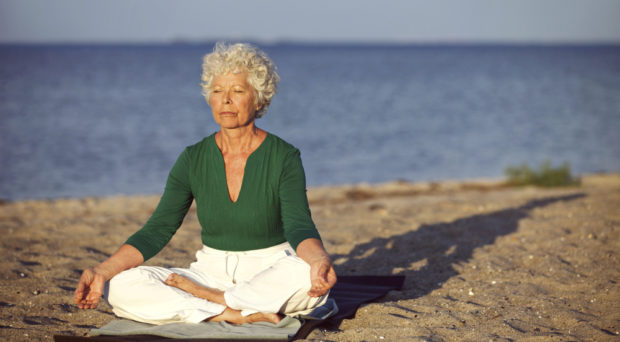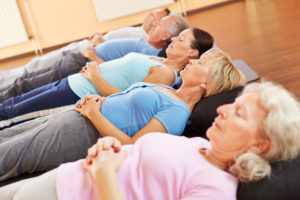
The number of people over 60 years old in the United States is expected to double by 2050. And this presents a growing societal challenge: How do we ensure that this population has the skills necessary to lead a healthy lifestyle and remain socially engaged?
Two promising interventions that could benefit older adults cognitively, emotionally, and physically are exercise and mindfulness. Exercise helps prevent falls, delays disability, enhances cognitive functioning, improves depression, and reverses metabolic diseases. Mindfulness reduces stress, worry, and loneliness; decreases systemic inflammation; and improves mental health, sleep, awareness, self-efficacy, cognitive functioning, and psychological well-being. Given these benefits of exercise and mindfulness, we wanted to know what it is that keeps older adults from initiating and maintaining such health-promoting activities. As it happens, researchers rarely explore the preferences and motivations of older adults in this context, and this lack of research spawned our qualitative study, published in BMC Geriatrics, comparing elderly participants’ perspectives of the benefits and barriers of initiating and maintaining mindfulness and exercise.
How we explored these questions

We carried out focus groups with 41 adults aged 65–85 who had recently participated in a clinical trial involving Mindfulness-Based Stress Reduction (MBSR) training, structured exercise, or a combination of both. These three approaches are all effective and feasible interventions that promote healthy behaviors in older adults who are in the midst of mental, social, emotional, and physical change, but we wanted insights into which was most effective from the perspective of study participants who experienced each approach. We used a semi-structured interview to ask participants open-ended questions regarding the benefits, barriers, and facilitators of participating in mindfulness and/or exercise interventions.
Benefits and barriers
Most participants reported mental, physical, and social improvements as part of their respective interventions. Participants indicated that the mindfulness training increased their awareness and self-reflection and fostered a more self-accepting attitude. They also saw improvements in their self-care habits and reported having better familial and social relationships. In fact, the social benefits and sense of community were some of the primary motivators for older adults to continue the exercise and/or MBSR interventions. Participants also indicated that the structured exercise led to enhanced mobility and stronger muscles. Overall, our findings suggest that the potential benefits of mindfulness training may encompass a broader range of benefits than that of exercise alone, as mindfulness included positive effects on family, social, and marital functioning.
The main barrier to both the exercise and mindfulness groups was time-management. Many participants stated that they were very busy despite being retired. Other barriers included interruptions at home and frequent travelling. This aligns with previous studies that suggest that older adults resist exercise due to competing priorities, among other factors.

Motivation and opportunity
Overall, the study indicates that mindfulness training, along with exercise, can serve as a tool to cultivate important healthy lifestyle qualities among older adults, and that the benefits of exercise and MBSR are a motivation in and of themselves. However, the research on how to motivate older adults to initiate healthy behavioral changes is lacking. Based on the responses, if it weren’t for the accountability they felt to participate in the research or the incentives provided by the research team, these older adults might not have ever started making the healthy behavioral changes to begin with. This suggests that older adults may need more incentives to begin and maintain behavioral changes other than for their own health benefit.
We also inquired as to what type of community resources could facilitate the practice and maintenance of exercise and mindfulness. Some of the suggestions from the participants included offering exercise and/or mindfulness classes at libraries, community colleges, Silver Sneakers, OASIS international, or community centers and free or donation-based yoga in public parks. The inclusion of mindfulness practices and exercise in community programs could serve as a stepping-stone to ensure that older adults are well integrated in society.
Comments